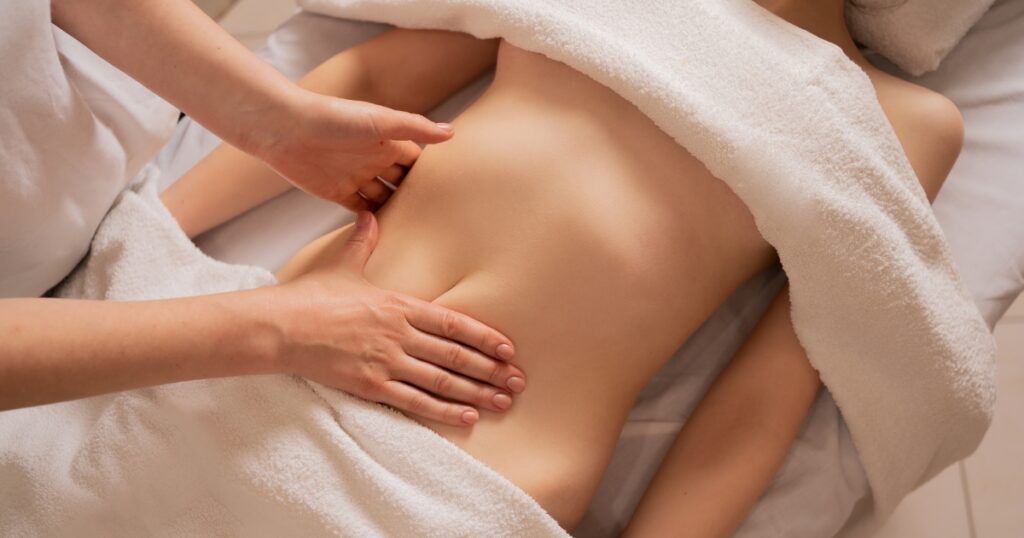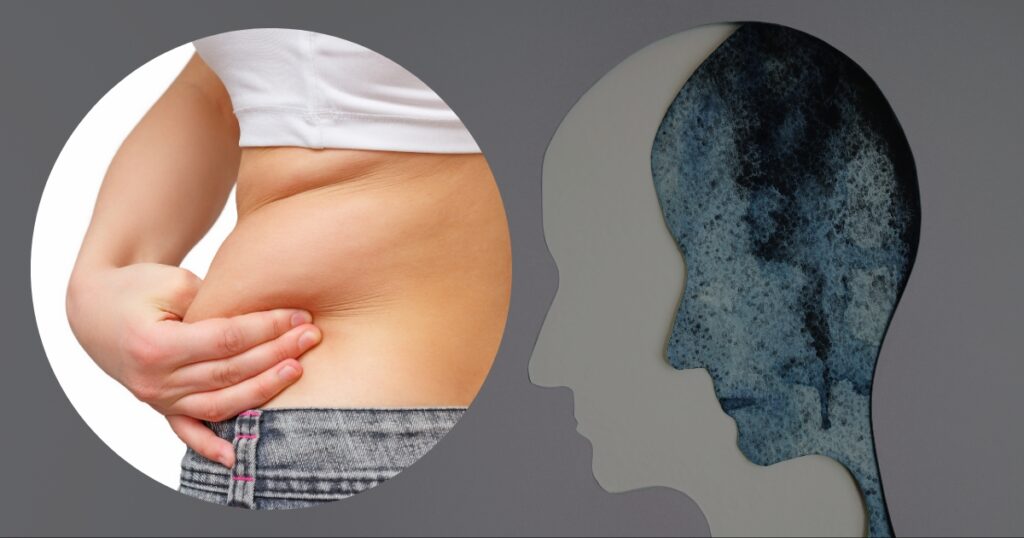Liposuction’s rise in popularity necessitates a deep dive into its ethical dimensions. The interplay of beauty standards, medical risks, and individual choice brings forth significant ethical considerations in liposuction.
What are the Ethical Considerations in Liposuction?
Liposuction Surgery, as a cosmetic procedure, raises various ethical questions related to medical necessity, societal pressures, and potential risks.
| Aspect | Concern | Potential Solutions |
| Medical Necessity | Is the procedure needed? | Assess the patient’s health and reasons |
| Societal Pressure | Influence of societal norms | Mental health counselling |
| Surgeon Experience | Ensuring competent procedures | Certifications & reviews |
| Environmental Concerns | Proper waste disposal | Sustainable surgical practices |
| Equity | Access to the surgery | Medical financing options |
| Religious Views | Respecting beliefs | Counselling & informed choice |
This table summarises the primary ethical concerns with liposuction, detailing the nature of each concern and suggesting potential mitigating solutions.
Is liposuction a medically necessary procedure?
While liposuction is often sought for cosmetic reasons, there are medical scenarios where it might be recommended.
Book A Consultation With Dr Tarek Bayazid
Top-rated Plastic Surgeon For Liposuction in Dubai
Installment Plan Available
- Lipomas– Benign fatty tumours that may require removal.
- Lymphedema- A condition where excess lymphatic fluid accumulates in tissues.
- Lipodystrophy Syndrome- A fat metabolism disturbance.
- Gynecomastia- In men, abnormal breast tissue enlargement.
- Cosmetic Enhancement– Most commonly, to reshape and contour body areas.
- Post-weight loss- Remove excess skin or stubborn fat after significant weight loss.
How does body image pressure influence the ethics of liposuction?

The societal obsession with an “ideal” body image can lead individuals towards unnecessary surgeries, raising ethical concerns.
- Media Influence- Portrayal of idealised bodies can induce pressure.
- Mental Health– The desire for body alteration can stem from deeper psychological issues.
- Peer Pressure- Influence from friends or family can factor into the decision.
- Evolving Beauty Standards- Changing societal norms can shift perceptions of beauty.
- Youth Influence– Young individuals might be especially vulnerable.
- Celebrity Culture– Celebrity endorsements or revelations can sway public opinion.
Are there environmental considerations in liposuction waste disposal?
The surgical waste from liposuction, if not managed properly, can present environmental concerns.
| Waste Type | Environmental Impact | Proper Disposal Methods |
| Biohazardous | High | Specialised waste management |
| Single-use Instruments | Moderate | Recycling & reduced usage |
| Chemicals | High | Hazardous waste disposal |
| Resource Use | Moderate | Sustainable sourcing |
| Recyclable Materials | Low to Moderate | Recycling programs |
| Energy | Moderate | Energy-efficient equipment |
The table reviews different types of waste from liposuction, gauges their environmental impacts, and recommends proper disposal methods.
How do religious views impact the ethics of undergoing liposuction?

Certain religions and cultures might view body alterations as inappropriate or disrespectful.
| Religion | General Stance on Body Alteration | Exceptions |
| Christianity | Varies; the body as a temple | Personal interpretation |
| Islam | Generally against unnecessary changes | Health reasons |
| Hinduism | Emphasis on natural beauty | Personal choice |
| Buddhism | Emphasis on inner over outer beauty | Personal interpretation |
| Judaism | Varies; prohibition against self-harm | Health & well-being |
| Atheism/Agnosticism | No religious stance | Personal choice |
This table overviews various religious stances on body alteration, like liposuction, and any exceptions that might apply.
Are there long-term health risks that make liposuction ethically questionable?
Post-liposuction, patients might experience complications or adverse outcomes, leading to ethical considerations.
| Potential Risk | Likelihood | Impact | Management |
| Infection | Low | High | Sterile techniques & post-op care |
| Scarring | Moderate | Moderate | Proper surgical techniques |
| Numbness | Low | Low to Moderate | Informed consent & post-op care |
| Visceral Fat Increase | Low | High | Dietary & lifestyle advice post-op |
| Surgical Complications | Low | High | Skilled surgeon & proper pre-op evaluation |
| Post-surgery Regret | Moderate | High | Counselling & proper consultation |
This table showcases potential long-term health risks associated with liposuction, the likelihood of these risks, their potential impact, and management strategies.
How does the marketing of cosmetic surgery play into the ethical debate?
Overzealous marketing might oversell benefits and downplay risks, leading to uninformed decisions.
- Truth in Advertising- Ensuring claims are factual and not misleading.
- Informed Consent- Marketing should be able to handle the need for thorough patient education.
- Targeting Vulnerable Populations- It is unethical to prey on individuals with low self-esteem or body issues.
- Promotions and Discounts- Can trivialise the seriousness of surgery.
- Testimonials– The use of testimonials might skew the perception of results.
- Transparency– Clinics should be upfront about risks and potential complications.
What are the psychological implications of promoting liposuction?

The promotion of liposuction might inadvertently reinforce negative body images or lead to psychological distress.
- Body Dysmorphia– Reinforcing unrealistic body standards.
- Mental Well-being- The potential for regret or dissatisfaction post-surgery.
- Social Pressure– Feeling the need to conform to societal beauty norms.
- Self-worth– Associating self-value with physical appearance.
- Influencer Culture- The power of influencer endorsements on decision-making.
- Seeking Perfection- The endless chase for an unattainable ideal.
Is there an age limit after which liposuction becomes ethically concerning?
Performing liposuction on individuals at the extremes of age can raise ethical concerns due to increased risks and potential motivations.
| Age Group | Ethical Concerns | Safety Considerations | Societal Implications |
| Teens | Mental readiness | Higher complications risk | Peer pressure & body image |
| 20s-30s | Informed decision-making | Lower complications risk | Media & societal pressures |
| 40s-50s | Motivation for surgery | Varied risk | Midlife Concerns & societal Expectations |
| 60s+ | Health risks | Higher complications risk | Ageing gracefully vs. societal standards |
This table segments the population by age group, and for each group, it lists associated ethical concerns, safety considerations, and societal implications of undergoing liposuction.
How do medical professionals weigh the benefits versus risks in recommending liposuction?
Medical professionals must ensure the physical and psychological well-being of patients by carefully assessing potential outcomes.
| Consideration Factor | Benefits | Risks | Ethical Dilemma |
| Patient Health | Improved health in specific conditions | Potential complications | Patient’s best interest vs. potential harm |
| Patient’s Mental State | Enhanced self-esteem | Post-surgery regret | Mental well-being vs. physical changes |
| Expected Outcome | Achieved the desired appearance | Unrealistic expectations | Patient satisfaction vs. potential disappointment |
| Procedure Safety | Established techniques | New, untested methods | Patient safety vs. advancing medical techniques |
| Financial Aspects | Profit for the clinic | Expensive for the patient | Profit motive vs. patient’s best interest |
| Patient Age | Varying reasons for surgery | Different risk levels | Age appropriateness vs. patient autonomy |
This table breaks down how medical professionals might weigh the benefits against the risks of liposuction, focusing on various consideration factors and the associated ethical dilemmas.
Does the media’s portrayal of ideal bodies contribute to the ethical concerns of liposuction?
Media’s portrayal of “perfect” bodies can exacerbate the pressure to undergo cosmetic surgeries, raising ethical questions.
- Unrealistic Standards– Media often showcases airbrushed or edited images.
- Celebrity Influence- Celebrities undergoing surgeries can set trends.
- Public Perception- Media shapes societal beauty norms and standards.
- Mental Health- Media-induced body dissatisfaction can lead to mental health issues.
- Youth Influence– Younger audiences are especially susceptible to media influence.
- Consumerism and Beauty– The media-business complex driving the desire for beauty products and surgeries.
Are there ethical concerns about inexperienced surgeons performing liposuction?
Inexperienced surgeons can lead to complications, raising questions about patient safety and the ethics of surgical practice.
- Skill and Training– Ensuring surgeons have adequate training and experience.
- Certifications- Ensuring surgeons have relevant board certifications.
- Patient Safety- Inexperienced surgeons might pose higher risks.
- Informed Consent- Patients should be aware of a surgeon’s experience level.
- Continued Education- Surgeons should be updated with the latest techniques.
- Regulatory Oversight- Proper monitoring and regulations to ensure patient safety.
How do societal beauty standards intersect with the ethics of cosmetic procedures like liposuction?
Societal standards of beauty, influenced by various cultural and media factors, can drive individuals towards cosmetic procedures, presenting an ethical dilemma.
- Historical Context- Beauty standards have evolved, influencing surgical trends.
- Cultural Differences- Different cultures have unique beauty ideals.
- Media Influence– Media plays a pivotal role in shaping modern beauty standards.
- Social Media Trends- Platforms like Instagram amplify beauty norms.
- Peer Pressure- Societal circles can influence individual beauty perceptions.
- Personal Autonomy- Balancing societal influences with particular choice and autonomy.
While liposuction offers aesthetic benefits, it’s intertwined with notable ethical dilemmas. These ethical considerations in liposuction urge both medical practitioners and society to contemplate the values underpinning such procedures.
Dr Tarek Bayazid, one of Dubai’s top plastic surgeons, is renowned for his experience and body contouring expertise. With a unique blend of innovative techniques and an emphasis on natural outcomes, he has garnered international recognition. Dr Tarek combines artistry with patient safety to deliver unparalleled results.
Book a Consultation with Dr Tarek Bayazid today and discover aesthetic excellence.











Related Posts